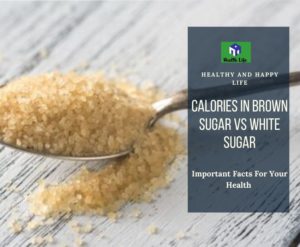Nowadays, many people have become conscious about sugar. Moreover, many others are also curious about brown sugar. So, it is time to know about the basic differences between white sugar and brown sugar. Furthermore, it is also critical to know about the Brown sugar nutrition facts along with other aspects.
Basically, sugar is an integral part of most of the kitchens. Being a natural component, it had taken a crucial part of the diet.
However, not only white sugar but also sugar comes in different variations. Nonetheless, the post will focus only on two variants: white sugar and brown sugar. Hence, at the end of the post, you can choose the ideal option with ease. So, are you curious? Then, let us start the discussion.
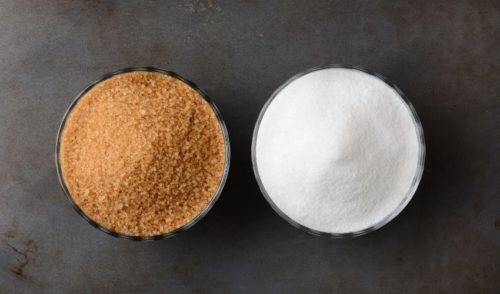
About Brown Sugar.
Do you wonder what brown sugar actually is? The base is white sugar. However, molasses plays an additional role here to bring a different color and taste. Owing to molasses, brown sugar can retain a wet sand-like shape. Nonetheless, you cannot expect the same from white sugar.
Note that raw sugar also comes in brown color. How? It is due to the evaporation of sugarcane juice. Nonetheless, you can think of brown sugar as molasses-added granulated white sugar.
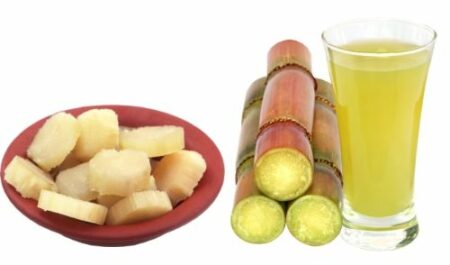
Now, what is granulated sugar? Unlike powdered sugar, granulated sugar has granules that you can separate. White and brown sugar are two popular variations of sugar. However, their manufacturing technique is different.
And it is responsible for the differences in colors, flavors, and culinary utilization. Note that brown sugar is processed sugar added with molasses in most of cases.
Brown Sugar And White Sugar Comparison
Many differences are there between brown sugar and its white counterpart. Thus, you can get to know if brown sugar healthy for you.
Nutritional Profile Comparison.
Remember, both of these variations have the same source: sugar beet or sugarcane plant. However, both of these plants share loads of similarities. However, most of the brown sugar comes as a blend of molasses as well as white sugar.
That means it is a sugar-oriented syrup. Molasses causes the darker color of brown sugar. Furthermore, it has also increased the nutritional profile of brown sugar.
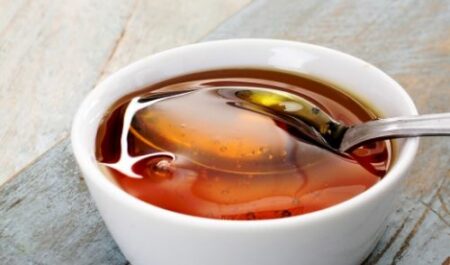
When it comes to the brown sugar nutrition facts, you must know some information. For instance, brown sugar consists of a higher amount of calcium, potassium, and iron.
However, according to some, these contents are not significant. Moreover, brown sugar does not come with any sort of minerals or vitamins.
What Is More About Calories in Brown Sugar?
Already you know about some nutritional benefits of brown sugar over white. However, another amazing fact lies in its calorie content.
Do you know brown sugar comes with a bit fewer calories compared to white? Nonetheless, there is a slight difference. Of course, if you are on a strict diet, then every calorie counts. Is not it?
Four grams or one teaspoon of brown sugar contains 15 calories. On the other hand, the same content of brown sugar offers 16.3 calories. Now, you can choose an appropriate option for you, as per the needs.
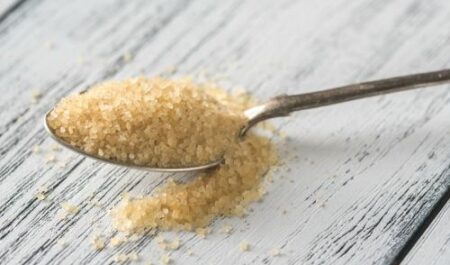
What is brown sugar carbs? 100 grams of brown sugar contains 98 grams of carbohydrates. On the contrary, the same amount of white sugar comes with 100 grams of carbs.
Nonetheless, there are some minor differences based on their nutrition. Now, you can wonder whether there are any key differences between them. Yes, there are! However, it is regarding their color as well as taste.
Health Benefits Of Brown Sugar.
Are you looking for more information on brown sugar nutrition? Then, this segment will help you. You are already familiar with how many carbs in brown sugar. However, when it comes to minerals, brown sugar again wins the game.
It features a bit more minerals as compared to its white counterparts. All credit goes to the molasses. Furthermore, white sugar does not contain magnesium. On the other hand, brown sugar comes with 9 milligrams of the same.
Moreover, there is a difference in potassium content as well. Whereas white sugar contains 2 milligrams of the same, brown sugar has 133 milligrams.
What is the calcium content? Again, brown sugar wins the race, as it contains 83 milligrams of it. However, white sugar comes with 1 milligram only. Do you want to know brown sugar calories per 100 grams? It is 380. Nonetheless, its white counterpart comes with 387 calories.
Certainly, some nutrition-specific benefits are there with brown sugar than white. However, you cannot expect loads of advantages of the same. Why? Because there are almost negligible differences between the brown and white In the end, it is about sugar, is not it?
Now, if you do not want to add sugar in your diet, replacements can help! What is a great substitute for brown sugar? Coconut sugar is an option. Moreover, agave nectar also plays the same role.
What Is About The Production?
Now, you can wonder how to make brown sugar. You already know sugar beet or sugarcane plants are the sources of sugar. However, the process of sugar manufacturing is similar. Nonetheless, the procedure of making white and brown sugar is different.
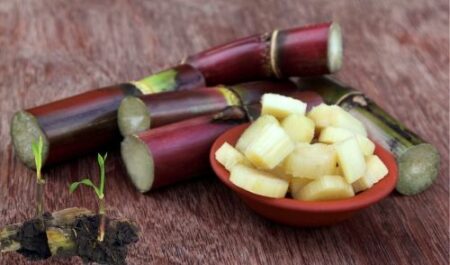
When it comes to refined brown sugar, it is just a variation of white sugar. And the difference is due to molasses. On the contrary, unrefined, whole brown sugar experiences less processing. Moreover, it also keeps some amount of molasses as well as the natural color.
What Is About Culinary Uses?
There are different uses of both brown and white sugar in cooking as well as baking. Moreover, some people use them interchangeably. However, it definitely influences the taste, texture, and color of the output.
When it comes to brown sugar, molasses are there. And it can keep moisture. As a result, baking with brown sugar will result in softer products. However, it will be denser.
On the contrary, brown sugar contributes to making dense baked products. It includes rich cookies as well as zucchini bread. Moreover, brown sugar also produces rich glazes as well as sauces like barbecue sauce.
What Is Caster Sugar?
Caster sugar comes with the texture of between powdered and granulated sugar. It is one of the popular types of sugar. Now, you can wonder about the differences between castor and granulated sugar. Actually, the former one comes with finely ground sugar crystals. On the contrary, granulated sugar has bigger crystals.
As a result, castor sugar can dissolve easily in creamed whips, mixtures, etc. Moreover, when it comes to baking, many people prefer castor sugar. It produces delicate baked products, such as soufflés, meringues, and so on.
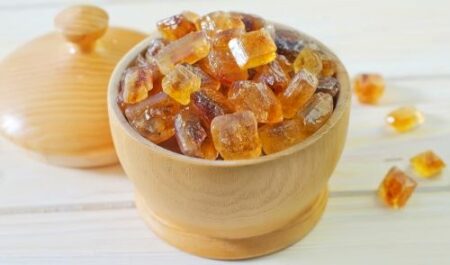
However, the preference between white and brown sugar depends on your choice. Remember, they will pose similar effects on health.
Wrapping Up
Now, you are familiar with various aspects of white and brown sugar. Moreover, you also know about the Calories in Brown Sugar. That means you can now choose a perfect option for you. For instance, brown sugar-made cookies will be dense as well as moist. On the contrary, white sugar-made ones become airier.
That is why many people prefer white sugar in baking many products. And it especially goes well for those, requiring enough rising. Some of the examples include soufflés, meringues, and so on.
So, which of the options are you going to opt for?
